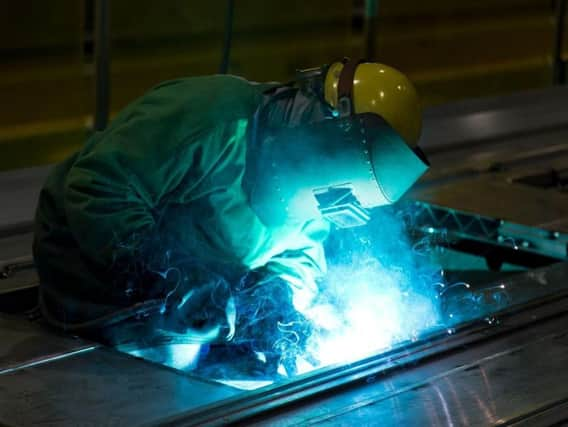Greg Wright: It's the skills deficit, stupid: A catchphrase for our times


“It’s the skills deficit, stupid”, ought to be the defining phrase of the 2017 General Election in Britain.
Surveys show that finding the right staff is a nightmare for many firms. Skills shortages are the biggest barriers to economic growth in the UK. The latest survey, from the Sheffield city region, shows that firms want to grow but can’t recruit people with the right technical skills. That should worry us all because it makes it much harder to deliver the headline-grabbing infrastructure schemes that lead to better road and rail connections.
Advertisement
Hide AdAdvertisement
Hide AdIf we can’t find skilled staff in the construction and infrastructure sectors then our roads will be condemned to long-term gridlock.
Regeneration schemes that could transform the lives of millions of people will simply grind to a halt.
Does this sound over the top? A tad melodramatic? Hardly, because I hear these sentiments expressed by business leaders every week.
The latest Sheffield City Region economic quarterly survey, for example, found that almost 75 per cent of manufacturing firms in Yorkshire’s industrial heartland are attempting to hire more staff. Unfortunately, many are finding it very hard to find people with the skills they need.
Advertisement
Hide AdAdvertisement
Hide AdAs a result, it’s much harder for them to chase lucrative orders at home and abroad. So who will snap up these opportunities?
Our competitors overseas, of-course, who have had the good sense to invest in training a new generation of top class engineers.
There are worrying signs that the skills gap is widening. The Sheffield City Region’s quarterly survey found that firms in the services and manufacturing sectors were experiencing more problems recruiting staff than they had in the same period last year.
In recent years, many firms have hired EU nationals because they cannot find skilled staff on their doorstep. We will face grave dangers if this talent pipeline is suddenly cut off.
Advertisement
Hide AdAdvertisement
Hide AdAccording to the UK statistics authority, UK manufacturers currently employ 300,000 EU citizens, representing about 10 per cent of the workforce.
Even with this influx of workers, 52 per cent of the respondents to a study by the Royal Institution of Chartered Surveyors said that skill shortages were affecting the performance of Yorkshire firms.
These point were reinforced when I met local firms at Doncaster Chamber’s annual conference. The chamber is warning of acute labour shortages in logistics and manufacturing.
It is seeking a version of Brexit that gives local firms access to a skilled labour market and assurances that EU nationals currently working in the UK will still be welcome after we leave the EU.
Advertisement
Hide AdAdvertisement
Hide AdAs Tim Thomas, the director of employment and skills policy at the manufacturers’ organisation, the EEF, observed: “The fact that more than a third of the occupations on the Home Office’s shortage occupation list relate to manufacturing and engineering tells its own story.”
Brexit gives us a chance to take a long hard look at the UK labour market. The historic decline in apprenticeships, and careers advisers’ reluctance to encourage young people to work in manufacturing, have all played their part in creating this crisis.
To emerge from it, the new Government must promote manufacturing and construction as exciting career options for people of all ages and backgrounds.
In particular, more girls and young women must be encouraged to enter professions that have been male-dominated for centuries. If we could tackle the gender imbalance head-on, we might finally witness the demise of a deficit which must trouble us all.